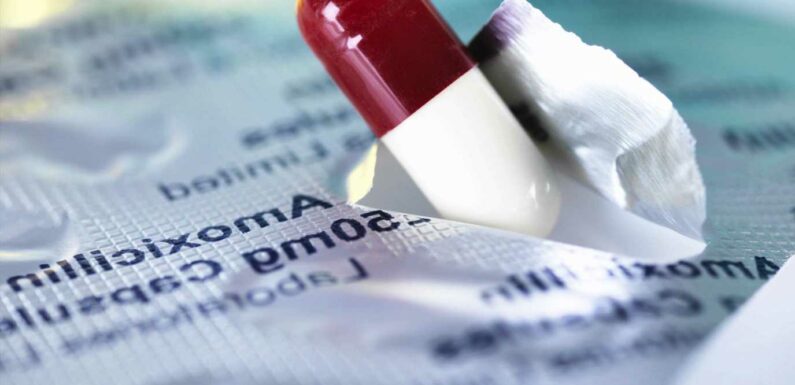
ANTIBIOTICS are arguably human-kind's greatest discovery.
The magic drugs mean we now live in a world where people don't die from tonsillitis and urinary tract infections.
But when antibiotics are used unnecessary, to fight illnesses caused by viruses which are unresponsive to antibiotics, or for minor infections that would clear up on their own, we fuel antibiotic resistance (AR).
This is when germs like bacteria and fungi develop the ability to defeat the drugs designed to kill them, making medicines less effective in the future.
Can I buy antibiotics?
The short, the answer is no – you'll need a prescription from medical practitioner.
An increasing number of infections, such as E. coli and sexually-transmitted disease gonorrhoea, are becoming harder to kill with standard antibiotics.
Read more on antibiotics
Here’s how long it takes for antibiotics to work
Can you drink alcohol on antibiotics?
This is why antibiotics are "safeguarded" by medical professional so they are "only used appropriately," explains Thorrun Govind, a pharmacist and chair of the Royal Pharmaceutical Society.
According to the NHS, antibiotics are only used to treat bacterial infections that are unlikely to clear up without antibiotics or could infect others.
They are also prescribed for infections that would take too long to clear without treatment and carry a risk of more serious complications.
"Not all antibiotics work for all bacterial infections," Thorrun tells The Sun. "So it's important that we match what the infection is to the antibiotics being provided."
Most read in Health
The popular sport which is good for your heart & keeps your blood pressure down
What treatment really works for unsightly fungal toenails? Dr Zoe has the answer
We may look healthy but we all live in fear of invisible killers striking again
I'm a sleep psychologist – what less than 6 hours of snooze does to your body
"It's also important we take the full course of antibiotics and prescribed.
"If we're not feeling unwell with the medicine it's important to speak to prescriber before we stop them," she says.
Earlier this year, former Health Secretary, Thérèse Coffey, admitted to sharing antibiotics with family.
"It's really important is to make sure we are not reusing or sharing our antibiotics," says Thorrun, "as this can also make the drugs less effective."
How long does it take for antibiotics to start working?
It might feel like you've been unwell for a long time, and in most cases you'll want to get better as soon as possible.
Antibiotics work by killing bacteria or preventing them from spreading, the NHS states.
According to Mike Hewitson, a pharmacist from Bristol, antibiotics get to work immediately, but you might not start to feel better straight away.
Mike tells The Sun: "How quickly you begin to work depends what antibiotic you are on, the strength of it and what infection you are treating.
"If you're receiving them through an IV they can begin to work within hours.
"But some oral antibiotics can take a weeks or so to take effect."
Most antibiotics should be taken for seven to 14 days. In some cases, shorter treatments work just as well.
When will I feel better and are there any side effects?
Everyone is different – as is there response to antibiotics.
Most people will feel better towards the end of the course, but this varies.
"It depends on the infection and antibiotic being taken," Mike Hewitson, a pharmacist from Bristol says.
"Remember that even if you feel better from the infection the antibiotics may make you feel unwell.
Read More on The Sun
I’m a PLT worker – we get free sweets and beauty treatments on payday
Areas you can get £650 free cash & you don’t have to be on Universal Credit
"Antibiotics can make you feel nauseous or give you an upset stomach," he adds.
If you have completed the course and don't see any signs of improvement, talk to your doctor or pharmacist.
Source: Read Full Article








